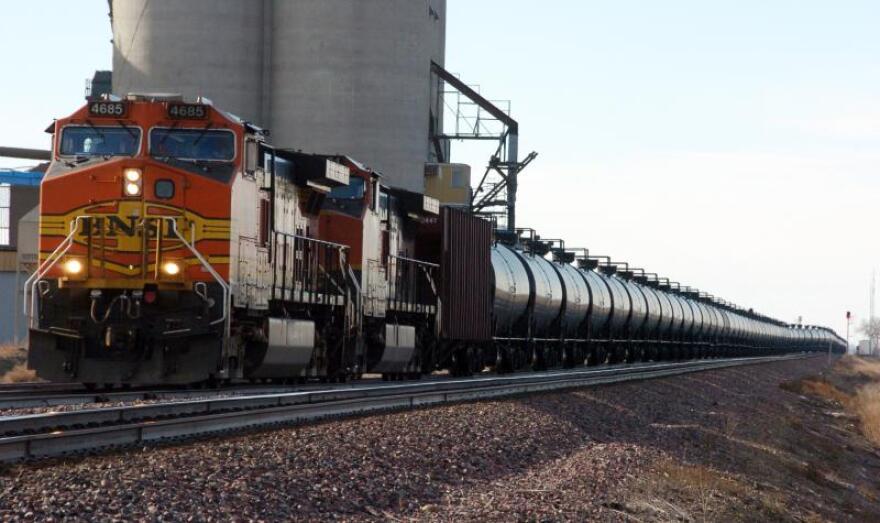An overflowing crowd turned out to testify in Skagit County Thursday on plans to add an oil-train facility to Shell’s refinery in Anacortes.
The company says it needs to be able to receive Bakken crude by rail to remain competitive.
Declining oil production in Alaska means more is coming from the American Midwest — by train instead of by boat.
And Tom Rizzo, general manager of Shell’s Puget Sound refinery in Anacortes, says his is now the only one in the Northwest that can’t take in crude by rail.
“The other four refineries all have these rail facilities and currently have the capability of bringing in Bakken crude,” Rizzo said. "So, having a rail facility at our site similar to what they all have at their sites is important to our long-term competitive position.”
He says the proposal to receive about one train a day of crude — or about 60,000 barrels — would not increase their production overall. Skagit County decided in April that the change wasn’t significant enough to require an environmental impact statement. After public outcry, the county added a series of conditions.
But Kristin Boyles, an attorney with Earthjustice, says that’s not enough. She filed an appeal with the county on behalf of several local community groups. The mile-long trains would cross Washington and head up the Interstate 5 corridor before passing through Mount Vernon and Burlington to get to Puget Sound. She says the entire area is exposed to the potential for train derailments and devastating fires, like the one in Quebec that killed 47 people.
“Washington is at the receiving end — and not in a good way — of a huge increase in fossil fuel transportation by rail. And if your town is on the rail line, you are staring at really monumental risks and impacts,” Boyles said.
According to permitting documents filed by Shell, the Anacortes proposal will move more than a million cubic yards of dirt and cost about a hundred million dollars, for the oil train terminal construction alone.
"And then factor on top of that public health risks, risks to marine life if there was a spill, risks to water quality and then ultimately the greenhouse gas emissions," Boyles said. "It is certainly a project that demands full review."
Nationally, Shell has pledged to use only modern rail cars and says the most explosive additives in Bakken crude are being phased out.
Locally, Rizzo says Shell will comply with whatever authorities decide. He says the company has worked on the permit for two years to ensure good outcomes.
"We have designed this facility with the highest standards of safety and environmental protection in mind,” Rizzo said.
For example, he says they worked with the Swinomish Tribe and other local agencies to add fish-friendly culverts to an area where the main rail tracks enter Shell's property near I-5. He says this will allow juvenile salmon to migrate from Fidalgo Bay into nearby waterways, in an area where they are currently blocked.
The refinery provides jobs for about 750 people. A group that formed to support plans for a coal terminal in Bellingham, The Northwest Jobs Alliance, submitted a letter supporting Shell's oil train proposal. It says requiring a full EIS every time there is a change to an existing operation is unreasonable and comes from people seeking to deindustrialize the economy.
Skagit County has extended the public comment period on the proposal and is accepting written testimony via its website through Feb. 5.



